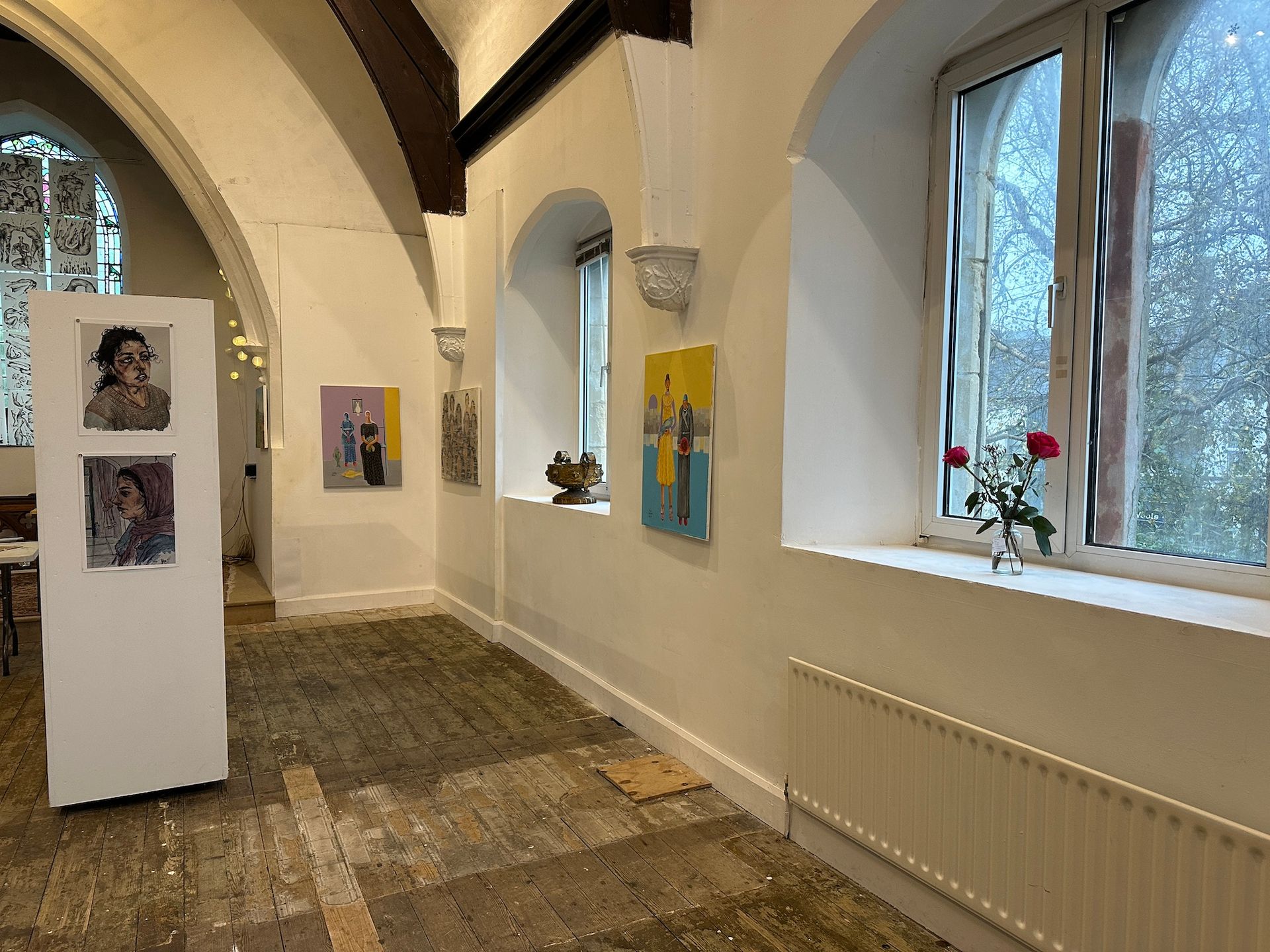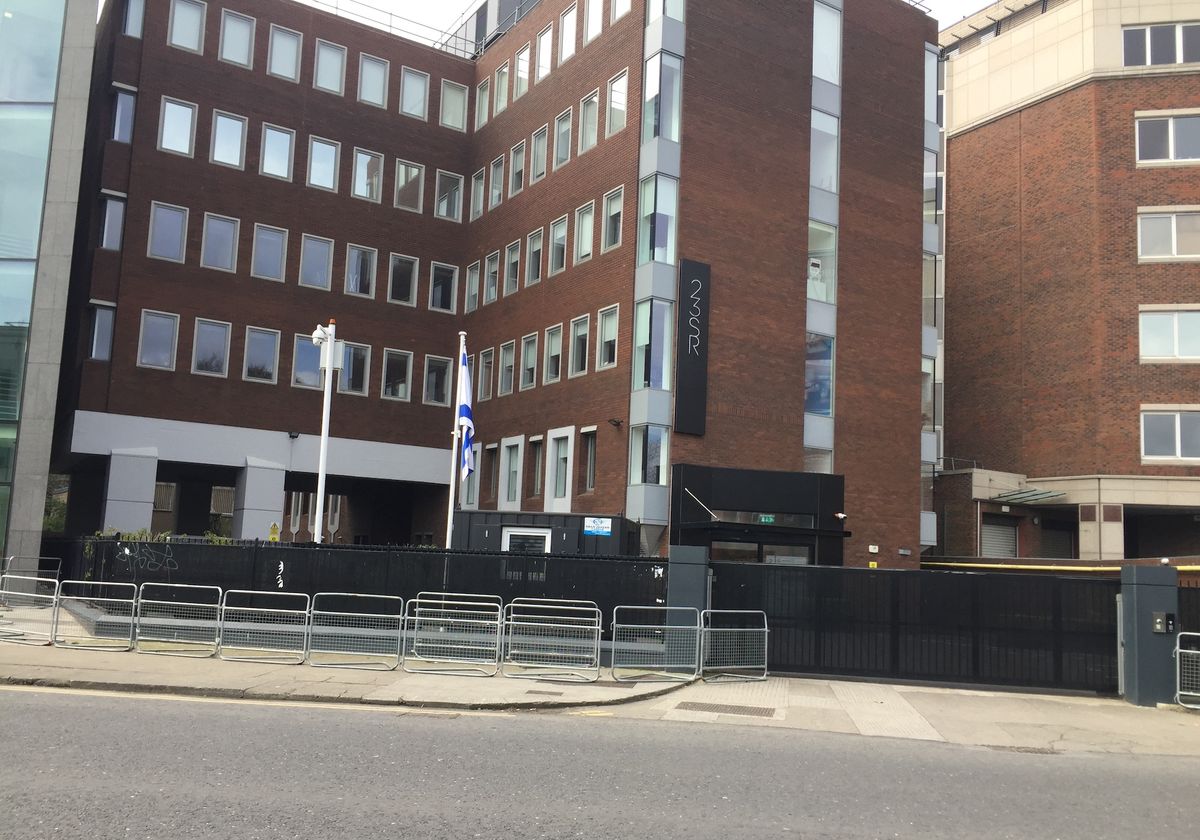The sudden closure of the Israeli Embassy in Dublin has created new possibilities for the Palestine Museum US.
“We’d be interested in making the former offices of the Israeli Embassy in Dublin into our permanent European headquarters,” Faisal Saleh, the director of the Connecticut-based Palestine Museum US, tells The Art Newspaper. “We want to change what was the headquarters for a war zone into an art zone.”
The Israeli government announced on 15 December that it would close its embassy in Dublin, citing Ireland’s recognition of a Palestinian state in May (it is one of three European countries to do so) and support for South Africa’s genocide case against Israel at the International Court of Justice (ICJ) for its actions in Gaza, announced last week.
“The decision to close Israel’s Embassy in Dublin was made in light of the extreme anti-Israel policies of the Irish government,” Israeli foreign minister Gideon Saar said in a statement. “Ireland has crossed every red line in its relations with Israel. Israel will invest its resources in advancing bilateral relations with countries worldwide, prioritising those that align with Israel’s interests and values.”
Simon Harris, Ireland’s Taoiseach (prime minister) condemned Israel’s decision, calling it “deeply regrettable”.
“I utterly reject the assertion that Ireland is anti-Israel. Ireland is pro-peace, pro-human rights and pro-international law,” Harris added. “Ireland wants a two-state solution and for Israel and Palestine to live in peace and security. Ireland will always speak up for human rights and international law. Nothing will distract from that.”
Saleh, whose museum just closed Art Under Fire, an exhibition in Bantry organised by the Cork Palestine Solidarity Campaign, saw an opportunity in the midst of crisis. Speaking with The Irish Times on Monday, he said he was hoping to reach out anyone that might have a contact with the company that leases the building that housed the embassy. The company that owns the building at 23 Shelbourne Road in the upscale neighbourhood of Ballsbridge—one of Dublin’s most prestigious areas—is Spectre (Shelbourne). It does not publicly list any contact information, but its address is listed as 15 Merrion Square North in Dublin and its director is Joe Christel.

Installation view of the recent exhibition Art Under Fire in Bantry, County Cork, Ireland Photo courtesy the Palestine Museum US
In fact, the Israeli Embassy’s move into the building’s fifth floor space in 2020 was the subject of concern related to security issues among fellow tenants, who filed a lawsuit in the High Court. The case was overturned in March of that year.
Saleh says the proposed usage of the former Israeli Embassy space is both a “practical and political move”. He says the Palestine Museum US “has been considering establishing more permanent spaces in Europe including Venice and London, as it’s more economical to have a permanent base in Europe, to avoid shipping fees”.
“Once I noticed the vacancy, I thought it was a compelling situation, Saleh says. “I thought it would be a brilliant idea—and a lot of people agree with me.” He notes that there have been more than 25,000 views of the Irish Times story on the museum’s Instagram account in 24 hours, and almost 100 comments. These range from enthusiastic would-be visitors inquiring about tickets and opening dates to promises of funding, according to Saleh.
“Ireland is a country that puts a lot of emphasis on the need to comply with international law, particularly when it comes to prevention of genocide,” he says, “and they have the courage to stand by those principals.”
He adds that there is more freedom of expression in Ireland when it comes to criticising Israeli policies than in other European countries. “In Germany it’s illegal to say ‘Free Palestine’—as it’s deemed ‘antisemitic’. But the Irish have had the experience of living under British occupation like the Palestinians before 1948 and they empathise with their plight.”
“I think it would be really excellent to have a Palestinian Museum in the old Israeli Embassy,” Jane Jermyn, an Irish artist and member of the Cork Palestine Solidarity Campaign, tells The Art Newspaper. “It would help remove the ‘stain’ of having had that embassy there. Many of us were sorry that Israel hadn’t been expelled earlier, rather than have them leaving of their own accord.”
Jermyn adds: “It is imperative to exhibit Palestinian art at this time. Art is a universal language. So much of the world seems to not see Palestinians as people just like us. Exhibitions such as the recent one in Bantry help to document life in Palestine through the eyes of a number of extraordinary artists. One of the young artists, in particular, Bayan Abu Nahla—her portraits really bring home the suffering and humanity of this appalling genocide.”


